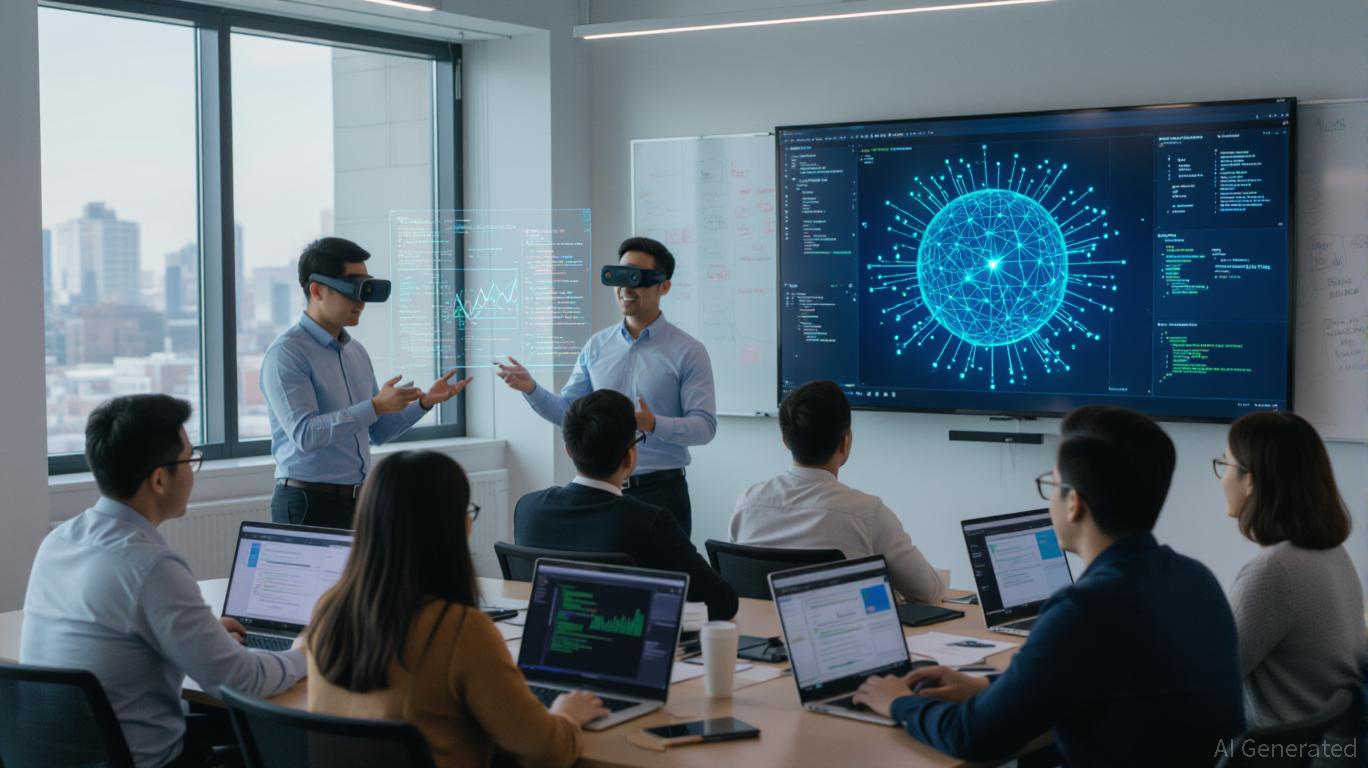The relationship between education and employment is experiencing a dramatic transformation, fueled by the swift progress of fast-growing industries such as technology, healthcare, and clean energy. As businesses respond to digitalization, environmental challenges, and changing demographics, academic institutions and training centers are working quickly to update their programs to match the evolving skills required in the future workforce. This presents investors with a rare chance to benefit from the close connection between educational advancements and the need for workforce upskilling. Here’s a closer look.
Tech: AI and Data Science Become Essential Studies
Expertise in AI and data science is now a global necessity, not just a Silicon Valley specialty. Universities are making major changes to their courses to keep up.
Seoul National University College of Medicine
has started a five-year project to weave AI, data science, and digital health into its medical curriculum, merging engineering, computing, and clinical training. Likewise,
the University of Chicago
is integrating AI and data science throughout all its departments, from healthcare innovation to environmental modeling. These initiatives are direct answers to workforce needs, not just academic theory. By 2025, positions such as AI experts, cybersecurity professionals, and cloud automation engineers are
expected to expand at double-digit percentages
.
Investors should pay attention: edtech companies specializing in AI-powered learning and industry collaborations are drawing substantial funding.
U.S. edtech companies raised $2.9 billion
in 2024, marking a recovery for a sector that struggled after 2022. For instance, startups built around AI are
seeing average seed investments rise
to $4 million, highlighting the industry’s growth.
Healthcare: Digital Health and Telemedicine Transform Training
Healthcare is being revolutionized by telehealth, AI-based diagnostics, and tools that boost operational efficiency.
Nurse practitioners are among the fastest-growing roles
, with demand for these professionals projected to jump 40% by 2034. The real shift, however, is in how institutions are responding.
Seoul National University's convergence model
focuses on more than clinical abilities, emphasizing data ethics and understanding algorithms. At the same time,
companies like Abridge and Prosper AI
are using AI to handle administrative work, allowing medical staff to concentrate on more valuable tasks.
This evolution is about more than just hiring—it’s about retraining the workforce.
According to a Deloitte report
, healthcare providers are prioritizing digital and AI solutions to improve efficiency, increasing the need for professionals skilled in both healthcare and technology. For investors, this opens doors to AI-powered healthcare solutions and training initiatives.
Prosper AI, for instance
, automates tasks like scheduling and benefits checks, giving staff more time to enhance their skills.
Renewable Energy: Building Skills for a Sustainable Future
The clean energy industry is expanding rapidly, with
global investments in energy transition technologies hitting $623 billion
in 2023. However, the sector’s growth depends on a well-trained workforce. ComEd’s Power Up Academy, a 14-week training course for entry-level technical jobs, demonstrates how companies are closing the skills gap. The program,
developed with Revolution Workshop and City College of Chicago
, teaches skills in AutoCAD, electrical systems, and project management. Similarly,
New York's NYSERDA has allocated $2.5 million
to apprenticeships for heat pump and insulation technology.
Investors should look for businesses and funds that are in step with these developments.
The National Clean Energy Workforce Alliance
, backed by the Bank of America Charitable Foundation, is a standout example of public and private sectors working together to expand training. Meanwhile,
the Inflation Reduction Act (IRA)
is driving up demand for jobs in solar, wind, and battery storage, helping to build a pipeline of skilled workers.
Investment Implications: Where to Focus Capital
The merging of education and industry needs is creating significant opportunities for investors. In technology, platforms for AI-based learning and cybersecurity education are essential. For healthcare, investments in AI diagnostics and telehealth infrastructure are crucial. In clean energy, programs for workforce retraining and green technology apprenticeships offer lasting value.
Consider these figures: the U.S. clean energy workforce expanded by 12% from 2021 to 2024,
outpacing overall employment growth
. Likewise,
AI investments in healthcare diagnostics
and personalized medicine are rapidly increasing. These are not just passing trends—they represent fundamental changes.
Conclusion: Education Powers Economic Progress
The future of employment is being shaped in both educational and corporate settings. As universities adapt to the needs of AI, telehealth, and renewable energy, they are developing a talent pool that investors should not overlook. The smart move is to support organizations that are not only keeping up but also leading innovation. Ultimately, in a world where skills are the key to achievement, education stands as a strategic investment, not just an expense.
